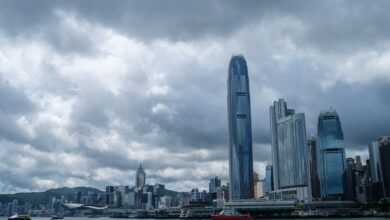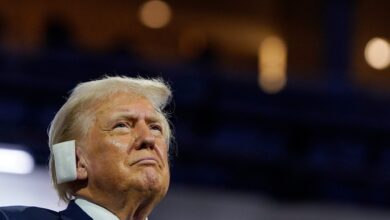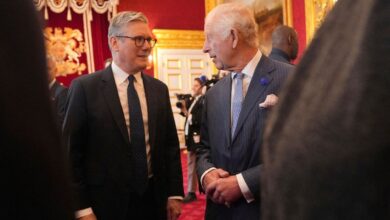New Zealand lobbied French on Solomon Islands-China pact, cables show
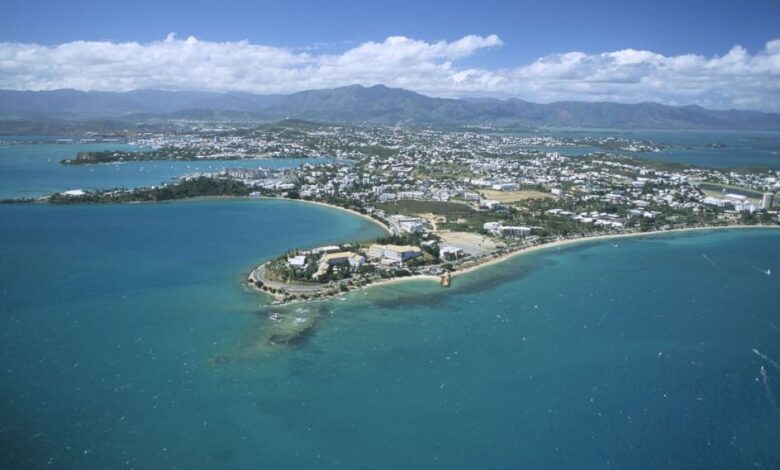
Taipei, Taiwan – New Zealand lobbied France’s territories in the Pacific to respond to news of a controversial security pact between China and the Solomon Islands that set off alarms in Western capitals, newly released documents reveal.
Within days of a draft version of the security pact leaking online in March 2022, representatives of New Zealand, Australia and France were meeting to discuss the implications for the region, the diplomatic cables obtained by Al Jazeera show.
While the precise nature of the discussions is unclear due to redactions in the documents, the cables suggest Wellington hoped officials in French Polynesia and New Caledonia would take a position on the Solomon Islands-China agreement.
New Zealand diplomats in New Caledonia’s capital Noumea noted in their reports to Wellington that neither French Polynesia nor New Caledonia “is likely to take a public position” on the deal.
After a meeting with New Caledonia’s High Commissioner Patrice Faure on March 30, New Zealand officials reported that they had relayed an unspecified “suggestion” to their French counterpart, “noting the need for the first response to be from Pacific leaders and from the [Pacific Islands Forum]”.
“We suggested it would be helpful for Faure …,” the New Zealand diplomats said, referring to suggested action whose details are redacted in the documents.
“Faure undertook to do so, as well as to speak to High Commissioner Sorain, his counterpart in Papeete, with the same aim in mind,” the diplomats said, referring to High Commissioner of French Polynesia Dominique Sorain.
New Zealand officials held three meetings in total with officials from the French overseas territories between March 29 and March 30, the documents show, including discussions with the President of French Polynesia Edouard Fritch, and Francois Behue, the head of the regional cooperation and external relations department in New Caledonia.
Australia’s then consul general in New Caledonia, Alison Carrington, joined the Kiwi diplomats in their meetings with Faure and Behue, according to the documents.


“The Pacific Islands Forum [PIF] serves as the pre-eminent regional organisation for Pacific Leaders to discuss, build consensus, and act on shared challenges. Pacific Islands Forum members have the collective capacity – and a strong commitment – to support each other to meet the broader ambitions for the region’s security, as set out in the Biketawa and Boe Declarations,” a spokeswoman for New Zealand’s Ministry of Foreign Affairs and Trade said in a statement provided after publication.
“For example, New Zealand has a long-term security partnership with Solomon Islands, most recently demonstrated in New Zealand’s participation [with Australia and Fiji] in the Solomon Islands International Assistance Force [SIAF] and the security support we provided to the Solomon Islands’ hosting of the Pacific Games late last year.”
Asked about perceptions that New Caledonia and French Polynesia were reluctant to comment publicly on the Solomon Islands-China security pact, the spokesperson said, “It is not for New Zealand to comment on the perspectives of other countries.”
“However, security and defence issues are competencies of the French state,” she said.
Australia’s Foreign Ministry, and France’s high commissioners in New Caledonia and French Polynesia, did not respond to Al Jazeera’s requests for comment.
News of the Solomon Islands-China security pact in 2022 prompted alarm in the United States, Australia and New Zealand, which have long regarded Pacific Island nations as their geopolitical back yard.
Western officials have raised concerns that China could use the pact to establish a military foothold in the Solomon Islands – which lie about 2,000km (1,242 miles) from Australia and 3,000km (1,864 miles) from major US military installations on Guam – which both Beijing and Honiara have denied.
Then-New Zealand Prime Minister Jacinda Arden called the deal “gravely concerning” and warned it could lead to the “militarisation” of the Pacific, echoing similar warnings from the US and Australia.
France was comparatively muted in its response to the pact despite the presence of more than half a million French citizens and 2,800 military personnel spread out across the Pacific.
While New Caledonia and French Polynesia have elected legislatures that handle domestic issues, Paris handles the territories’ security and defence.
New Caledonia, home to a French military base, lies less than 1,400km (870 miles) south of Solomon Islands, and its native Kanak people share ethnic ties with Solomon Islanders.
Anna Powles, a senior lecturer at the Centre for Defence and Security Studies at Massey University, said the diplomatic cables suggested that Wellington wanted to send a “clear message to Paris that any response needed to be Pacific-led”.
Powles said that neither France nor its overseas territories have been very active at the PIF, although French President Emmanuel Macron has made the Asia Pacific a central part of his foreign policy strategy since 2018.
France is not a member of the forum, but it indirectly has a seat at the table through its overseas territories.
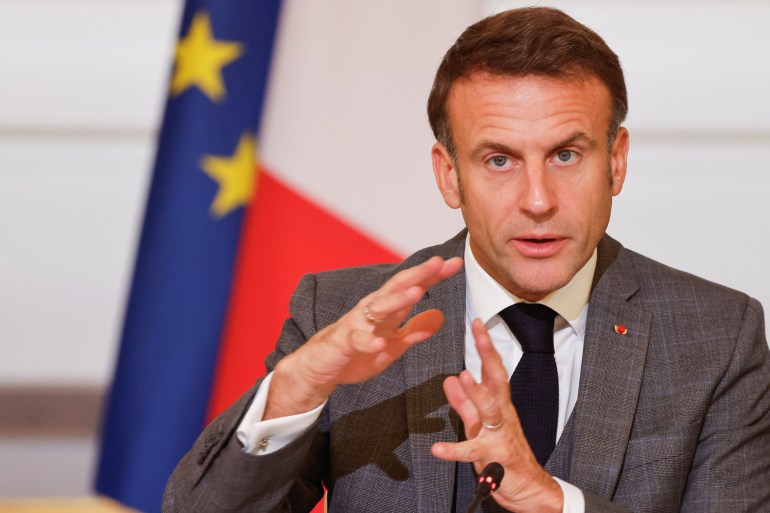
Macron’s attempts to work more closely with members of the Five Eyes intelligence alliance – made up of Australia, Canada, New Zealand, the United Kingdom and the US – in the region took a hit after a submarine deal with Canberra fell apart in 2021, leading to the formation of the AUKUS security alliance between Australia, the UK and the US, although relations have improved since then.
In December, France hosted the South Pacific Defence Ministers Meeting in Noumea, joined by Australia, Chile, Fiji, New Zealand, Papua New Guinea and Tonga, with Japan, the UK and the US attending as observers.
France’s bid to expand its influence in the Pacific also comes as pro-independence movements are under way in New Caledonia and French Polynesia, where Paris fears growing Chinese influence.
Macron warned last year about a “new imperialism” in the Pacific in remarks believed to have been aimed at China, although he did not mention Beijing by name.
Cleo Paskal, a non-resident senior fellow at the Foundation for Defense of Democracies, said the diplomatic cables appeared to show New Zealand trying to skirt around the French bureaucracy.
“I would have thought that if they were taking France seriously … they could go to the French embassy in Wellington. It feels at best clumsy and not necessarily with a full understanding of the complexities of France’s relationship with China,” Paskal told Al Jazeera.
Paskal said it was difficult to gauge New Zealand’s intentions as Wellington had, at the time, been working to improve relations with Beijing, while the PIF has had little to say about issues involving the Solomon Islands and China.
“Frankly, I don’t know what they’re doing. The PIF never came close to making a statement like this. The only regional leader that made a statement on this was [President] David Panuelo from the Federated States of Micronesia, and he was not given a lot of open backing from across the region at all,” she said.
“New Zealand was trying to normalise relations with China and rallying the PIF to say something. It’s not congruent with things that were publicly known about New Zealand’s position at the time and PIF’s position still.”

